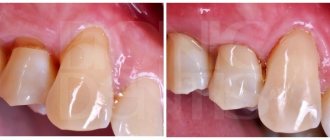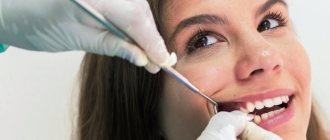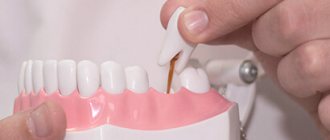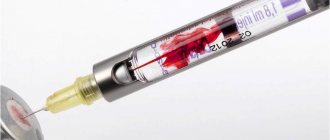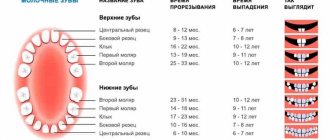The United States of America is the leading country in terms of the share of GDP allocated to healthcare. We have already discussed general issues of health insurance, now let’s talk about the nuances of dentistry in America, dentists’ salaries and the process of obtaining a dental license.
Dentist in the United States ranks seventh in the ranking in terms of salary among medical workers
General features of US dentistry
Medicine in America as a whole has a very high level of development, which also applies to dentistry. Thus, when treating teeth in the USA, the latest developments and unique equipment are used.
The treatment process is led by the dentist himself, and preparatory work (preparing a place for the patient and medications) is carried out by his assistants. In addition, in America, it is quite common for a dentist to serve several clients at once, and during his absence, certain actions are performed by the medical staff.
Insurance
Let us recall that in the USA there is a health insurance system: every citizen has paid insurance, and in the event of an insured event (illness), he goes to a medical organization, where, on the basis of insurance, he receives qualified medical care. To obtain a visa to the USA, you must obtain insurance, which can cover the costs of treatment during your stay in America.
If we talk about dentistry, the features here are as follows.
This is how the US health insurance system works.
The cost of dental services is often not included in basic insurance, or is included, but when you visit a dentist, it will actually cover only a small part of the costs. Of course, there are different insurance plans, but even people paying $400 to $500 a year in premiums say they rarely end up covering more than half of their costs. Therefore, it is often more profitable to simply not purchase additional dental insurance.
Activities of dentists
The main areas of American dentistry are such subtypes as therapeutic, surgical, orthopedic dentistry, orthodontics, periodontics, and implantation.
In the United States, the majority of dentists (about 80%) run their own private practices, and usually begin their business from the moment they receive a license. The dentist, as we have already noted, has staff at his disposal, but they are usually small.
Almost all stories about visits to American dentists note that the staff is very polite and always smiling. Now let's move on to a more interesting aspect - the cost of dental services.
Interesting review about dentistry in the USA. Americans are taught to take care of their teeth literally from the cradle. More details in the next video.
Prices
Generally speaking, dentistry in the USA, although of high quality, is very expensive and is not always available to certain categories of citizens. Considering that insurance almost does not cover these expenses, the citizen has to pay for dental treatment on his own, and quite a lot.
The first thing you will need to pay money for is a dental consultation. Its cost is about 40-60 dollars. In general, this price varies depending on the specific city: the larger it is, the more expensive the service. Approximate price list for other services:
- The price of the implant is from $3,000.
- A filling costs $200-400, but if the service is done with canals, it will cost 2-3 times more.
- Cleaning - about $500.
- Tooth extraction - from $100.
Private dental clinic in Beaverton, Oregon. Such mini-clinics are a common occurrence in the United States.
How to save money
As you can see, even for the United States this is very expensive. If we take, for example, a salary of $3,000 a month, then it will only be enough to install one implant! And in the case when several teeth need to be treated, the situation becomes more complicated. At what level the American salary is now, see here.
What to do in a situation where even insurance practically does not cover the cost of dental services?
Immigrants from the CIS countries prefer to have their teeth treated in their homeland. For example, dentistry in Russia is several times cheaper than in the USA: about 3-4 times . As for the quality, it is, of course, inferior to the American one, but overall quite acceptable.
Others often get their teeth treated in Mexico or Cuba, where prices are not as high.
At the same time, in the United States there are a number of measures that can help a citizen solve dental problems if the latter does not have the necessary money.
The design of American dental clinics is impressive in its diversity
The first is an installment plan. Some dentists may accommodate you and provide you with the opportunity to pay the amount in installments.
The second is the Carecredit program. The bottom line is that you are given a loan for certain medical expenses (including dental treatment), and are given a special card that you can use to pay.
What do dentists do?
A dentist is a highly qualified medical professional specializing in the treatment and hygiene of the oral cavity. The main task of a dentist is to diagnose, analyze and treat patients' problems with teeth and gums. This includes fillings, crowns, and x-rays to check for problems.
Dentists also recommend preventive measures to prevent tooth decay and other diseases caused by bad habits.
Daily tasks
Dentists have a wide range of responsibilities and tasks that they must manage on a daily basis. They analyze x-rays, examine patients for tooth decay or disease, and educate patients on proper oral care. More complex procedures include root canals, crowns, denture measurements, and sometimes tooth extraction.
Cavities are holes in teeth caused by tooth decay. Dentists repair cavities with fillings. When they identify a cavity, they begin by removing decayed tooth material and then clean the area. The dentist then uses a special material to fill the affected area to return the decayed tooth to its normal shape and function.
Read more about the income of doctors of different specialties.
Where can I find a job in general dentistry?
Most dentists are generalists, meaning that they do not specialize in any specific aspect of dental practice. Dentists work in dental offices, and many end up starting their own practices.
Duties and Responsibilities
The salary of a dentist in America depends, among other things, on the performance of professional duties. In short, these responsibilities for specialists in the field of dentistry are as follows:
- Teach patients the rules of oral hygiene.
- Prescribe antibiotics and painkillers.
- Provide care for patients with cracked or broken teeth.
- Perform procedures to treat dental caries and dental caries.
- Prepare and place fillings.
- Examine patients to diagnose teeth and jaws.
- Create models for dentures.
- Interpret x-rays and diagnostic tests.
- Remove teeth and root canals.
- Diagnose and treat oral diseases.
- Create detailed treatment plans for patients.
- Perform surgical interventions on teeth, bones and soft tissues.
- Educate patients about aftercare and answer questions.
Dentists' salaries
Representatives of the medical caste in the United States are traditionally the highest paid specialists. Dentists in America are no exception. The average annual income of these professionals is estimated to be almost $140,000! They earn approximately $80 an hour.
There is a certain gradation of dentists' salaries depending on the specific state. Thus, a dentist will be able to earn the least in Utah and Montana - about $115,000. New Hampshire has the highest income ($222,000), followed by Iowa ($202,000).
How much do dentists earn in different countries?
In addition, the location where the dentist provides medical services plays a role. For example, he can get the least income by working in large clinics, and the most by doing private practice in his own dental office.
It is interesting to compare the figures from the salary statements of dentists in Russia and the USA. An ordinary doctor in the Russian Federation does not earn much. For a complete picture, you can also look at the salaries of Russian surgeons.
Budget clinics
It is not always necessary to purchase a policy, and it is unlikely that one will get around to it if help is needed as soon as possible. In this case, it is worth considering the following several options.
- Free or public clinics
In addition to private ones, there are public and free clinics in the states. They charge about $15-20 for one visit – this includes examinations, cleaning, treatment and everything else. Some people think that treatment in such institutions is simply of poorer quality, but this is a myth. All equipment is new, doctors are qualified, reviews about them are mostly positive. Often these places employ young professionals who are not yet able or want to open their own business.
To get an appointment, you need:
- Find a clinic closest to your home - information about them can be found on the Bureau of Health Services website (www.hrsa.gov) or by calling 1-888-275-4772;
- Bring your ID or driver's license, proof of residence (you can provide any bills that come to your address), and copies of your two most recent work checks with you to your appointment.
There are also clinics run on a voluntary basis. There you can be treated for free or leave a feasible charitable contribution. More information about their locations can be found on the websites of the Bureau of Public Health or the United Way .
- Training clinics
Another chance to save money is to have dental treatment done by student interns and recent graduates. All procedures are carried out under the supervision of experienced doctors, but cost two to three times less. If you are still worried about the risks, then at least you can save a lot of money on preventative cleaning for students.
To get an appointment, you need:
- Find an educational institution on the American Dental Association website;
- Fill out the online form or apply by phone.
Due to the high demand, you are unlikely to be accepted right away. The waiting period for treatment or teeth cleaning is on average 1-2 weeks. Urgently, student dentists will only be able to help with tooth extraction.
- Clinical researches
The National Institute of Health Research website (www.nih.gov) periodically publishes advertisements for dental work groups. It also describes all the requirements, risks and benefits of participating in each individual experiment. If you respond, all dental help will cost you either at minimal prices or completely free.
How to become a dentist in the USA?
A person who has a dental license can provide dental services. To get it, you can use two options.
The first option is to follow the general path and graduate from US Dental School. After you complete it, you will have the corresponding degree - Doctor of medical dentistry (DMD) or Doctor of dental surgery (DDS). Any of these degrees will allow you to practice.
Before you can enroll in dental school, you will need to first complete your undergraduate degree. It is desirable that the bachelor's specialty be related to medicine and, in particular, dentistry.
License to practice as a dentist in the United States
Dental School
So, first you have to choose a Dental School; lists of all dental schools operating in America are easy to find on the Internet.
After this, you will need to collect documents and send them to the school. Then check the website of your chosen Dental school to see what exams you will need to pass. Very often, for example, an essay on the topic “Why I want to become a dentist” is required. If you are a foreigner, then you cannot do without TOEFL.
Once you get into dental school, you must study diligently for 3 years and pass an exam (WREB or NERB) upon completion.
After this, all that remains is to obtain a license from the American state where you plan to practice. Once you have your license in hand, you can begin providing medical services, but you will be in the status of a general dentist. If you want, you can get a specialization, but it will take time.
This is how the WREB exam passes, an exam for dentists, without which it is impossible to obtain a license.
Specialization
The second option is to immediately enroll in a specialization (orthopedics, periodontology). There are both advantages (for example, shorter duration of training) and disadvantages (not every educational institution offers a similar program). The main disadvantage is the narrow specialization in advance; in the future, you will be able to practice only in one specialty.
Note that training will cost you very much: 200 - 300 thousand dollars for the entire period of study.
In America, it is possible to get a grant for studying. But not everyone succeeds.
Labor market
The number of both dental school applicants and graduates has increased in recent years. Typically, demand for dentists follows the general business cycle, since dental services are often paid for by the patient or private insurance companies. Demand for dental services is predicted to increase as the population ages. Additionally, cosmetic dental services are becoming increasingly popular, and access to health insurance continues to grow.
Job prospects will be especially good for dentists who are willing to work in areas where patients need dental care but do not have access to it.
There are currently approximately 132,800 dentists in the United States. The dental job market is expected to grow 19.4% through 2026. The United States is expected to need 26,400 dentists in the next 10 years.
What to do if you already have a dentist degree?
Let us immediately note that if you received a diploma, for example, in Russia, then you will not be able to confirm it and practice in the USA. However, there are important nuances that are worth mentioning.
Some dental schools have programs that allow students who already have a dental degree from another country to enroll in their senior year of Dental School. Usually you are allowed to skip the first two years of study (hence, you will only have one or two years left to study).
Useful video for those who want to confirm their dental diploma in the USA.
Dental insurance
If you already live in the US, then you probably have health insurance . Insurance usually does not cover dental services; there are separate insurance plans for this. They cost a significant amount of money ($40-150 per month), but in any case they are cheaper than large-scale treatment.
If you know that your teeth are not going smoothly, it is better to purchase one. In particular, it is worth spending money if:
- you have poor heredity regarding teeth;
- you have already had prosthetics done;
- you periodically experience minor inflammation of the gums or other discomfort in the oral cavity;
- you have or are wearing braces.
You can ask the same agent who arranged general insurance for you about what options are available and how much the policy will cost. For some services in clinics you may be required to pay extra, so you should carefully study their full lists before purchasing.
Government dental insurance programs include, for example:
- CHIP – general insurance with dental included for children under 19 years of age;
- Medicare is an option for the elderly, as well as people with certain diseases (their list can be checked with the Department of Health, the nearest office will be told to you by calling 211);
- Medicaid is a program for the poor, and each state has its own conditions for purchasing it.
Germany
Andre Fischer, 34 years old, hometown Dresden, pediatric dentist
About choosing a profession
I come from a family of dentists: my father and grandfather worked as general dentists all their lives.
During my school years, my father and I studied human anatomy and physiology, and after that I entered the university.
Dentistry is a profitable field where a specialist can earn a good salary. I have been practical since childhood, so similar advantages of the profession helped in my choice.
The dental profession is one of the top highly paid professions in the world.
In large cities of Kazakhstan there are modern dental clinics with modern equipment and the best specialists. The number of such institutions is growing, which has a positive effect on the dental business market.
About working conditions
The work of a dentist is responsible and takes energy and time.
I work 50 hours a week and go on duty for five hours once a month. The schedule is shifts, in private dentistry they work for four hours, and in public dentistry for six.
As a general dentist, I can see both adults and children.
I undergo additional training several times a year and improve my qualifications every three years.
A beginning dentist in Kazakhstan receives 100,000 - 150,000 tenge per month. The salary increase depends on the length of service, qualifications of the specialist and the number of patients.
It is easy for newbies to get a job, but you need to be confident in your communication and professional skills. Private clinics are interested in young staff, since it is easier to train a newcomer in the methods and techniques of the clinic.
About plans
I plan to develop professionally - get more certificates, improve practical skills and delight patients with quality work.
